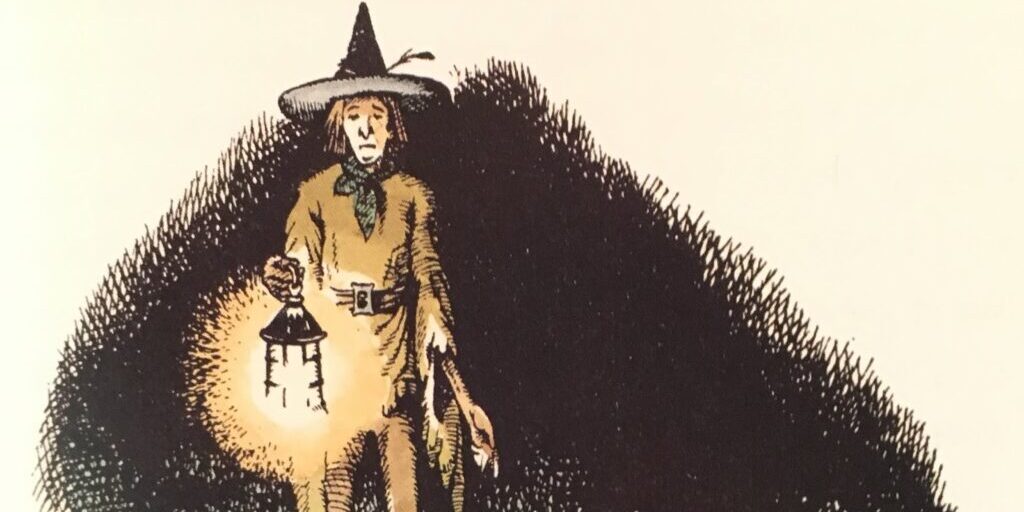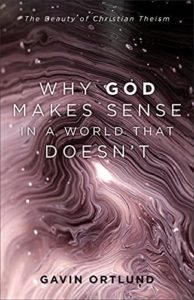
Help from Puddleglum
I am a Christian, and I have never rejected faith. But during certain seasons of my life, I have agonized my way through various doubts and intrusive thoughts. I’ve had a number of friends who have been through similar seasons of doubt and deconstruction. If you’ve been there, or are there, you know how confusing and painful that experi ence can be.
am a Christian, and I have never rejected faith. But during certain seasons of my life, I have agonized my way through various doubts and intrusive thoughts. I’ve had a number of friends who have been through similar seasons of doubt and deconstruction. If you’ve been there, or are there, you know how confusing and painful that experi ence can be.
I think we can expect that, in our cultural context, such ex periences will not be going away any time soon. The modern West is marked by a deep sense of the loss of transcendence and certainty—a feeling of disenchantment, as though life has been drained of its former glory and meaning. The general drift is away from stability and toward despair. I worry that many within the church, especially in younger generations, are illequipped to navigate these times. Frankly, it seems to me that Christians often fail to take the challenges seriously enough.The modern West is marked by a deep sense of the loss of transcendence and certainty—a feeling of disenchantment, as though life has been drained of its former glory and meaning. Click To Tweet
Sometimes in dark moments I have been gripped by the dreadfulness of the naturalistic view that tugs at us from all around. In those moments, I have found enormous relief and comfort in the kind of beauty oriented, narrative, abductive approach I’m taking here. As a summative expression of this approach, consider this passage from the character Puddleglum in C. S. Lewis’s Narnia stories.
Puddleglum is a rather gloomy character based on Lewis’s pes simistic gardener. In the book The Silver Chair, Puddleglum and his friends are held underground and tempted by an evil sorceress to doubt all that they believe is good about the world—the sun, the stars, and Aslan himself (the Christ figure). Puddleglum’s reply sums up several of the intuitions involved in the approach in this book, especially my interest in the emotional factor of belief:
One word, Ma’am. . . . One word. All you’ve been saying is quite right, I shouldn’t wonder. I’m a chap who always liked to know the worst and then put the best face I can on it. So I won’t deny any of what you said. But there’s one thing more to be said, even so. Suppose we have only dreamed, or made up, all those things—trees and grass and sun and moon and stars and Aslan himself. Suppose we have. Then all I can say is that, in that case, the madeup things seem a good deal more important than the real ones. Suppose this black pit of a kingdom of yours is the only world. Well, it strikes me as a pretty poor one. And that’s a funny thing, when you come to think of it. We’re just babies making up a game, if you’re right. But four babies playing a game can make a playworld which licks your real world hollow. That’s why I’m going to stand by the play world. I’m on Aslan’s side even if there isn’t any Aslan to lead it. I’m going to live as like a Narnian as I can even if there isn’t any Narnia. So, thanking you kindly for our supper, if these two gentlemen and the young lady are ready, we’re leaving your court at once and setting out in the dark to spend our lives looking for Overland. Not that our lives will be very long, I should think; but that’s small loss if the world’s as dull a place as you say.29
I have always found this passage to be a forceful statement against nihilistic worldviews. Some will dismiss its relevance, of course, since it comes in a children’s book. But Lewis was a master of stating profound ideas in simple, clear language. Here Lewis is utilizing a particularly powerful and profound idea (the ontological argument, my favorite idea of all time) and applying it to modern despair.30
Puddleglum is not advocating for a mere wishful thinking here; he is not saying, “It doesn’t matter what is true; it only matters what is beautiful.” Rather, Puddleglum is bringing considerations of beauty to bear on the question of truth. He is adopting the sorcerer’s outlook as a hypothetical (note the repeated word “sup pose”) and noting its utter desolation even on its own terms. Taken in the best way, Puddleglum’s appeal does not amount to “Your world is true, but I reject it anyway” but rather to “Supposing your world were true, I would reject it anyway—and that may well suggest it might not be true.”
Puddleglum’s sentiments point to the sheer oddity of a nihilistic world. If all the really stable, happy doctrines of Christianity (say, God, or heaven, or the triumph of good over evil) are false, and in reality our lives are a meaningless blip in a vast and indifferent cosmos, then the ideas in our brain are in a very real sense more weighty than the reality that brought our brains into existence. That is not very easy to swallow, and it is even more difficult to live off of.The thing to do is—with all the courage we can muster— acknowledge our biases, face our fears, and unendingly seek truth. Click To Tweet
Puddleglum is also saying (and my eyes well up with tears as I write this): at the deepest existential level, a true faith perseveres in hope, even when it does so blindly and forlornly (“setting out in the dark,” as Puddleglum puts it). The mere possibility of God drives it on, in the blackest moments. It fights with all the strength it can muster.
For all of us, the question of God is likely to take on this poignant feel at some time or another. Honest believers will likely have foreboding moments of disquiet (What if it’s all a sham?); honest skeptics will likely have panicky moments of hesitation (What if it’s true after all?). Whether we are in one of these camps or some where in the confusing middle, we must admit that we care deeply about the truth of the matter at hand. It’s personal. There is no good in pretending that we are completely objective and rational about it. The thing to do is—with all the courage we can muster— acknowledge our biases, face our fears, and unendingly seek truth.
The above excerpt is from the introduction to Why God Makes Sense in a World That Doesn’t by Gavin Ortlund. Baker Academic, a division of Baker Publishing Group © 2021 Used by permission.
Endnotes
29. C. S. Lewis, The Silver Chair (New York: Scholastic, 1953), 181–82 (italics original).
30. Some regard this passage as a sort of inversion of Plato’s famous allegory of the cave, but Lewis himself correlated it with the ontological argument for God’s existence. In a 1963 letter to Nancy Warner, responding to Warner’s mentioning that her son noticed an “ontological argument” in The Silver Chair, Lewis wrote, “I suppose your philosopher son . . . means the chapter in which Puddleglum puts out the fire with his foot. He must thank Anselm and Descartes for it, not me. I have simply put the ‘Ontological Proof’ in a form suitable for children. And even that is not so remarkable a feat as you might think. You can get into children’s heads a good deal which is quite beyond the Bishop of Woolwich.” C. S. Lewis to Nancy Warner, October 26, 1963, in The Collected Letters of C. S. Lewis, ed. Walter Hooper (San Francisco: HarperCollins, 2007), 3:1472. Obviously Puddleglum’s sentiments do not entail the ontological argument proper, in all its nuance. What is at play is the essential impulse of the argument—from the idea to the reality, on the principle of greatness.

